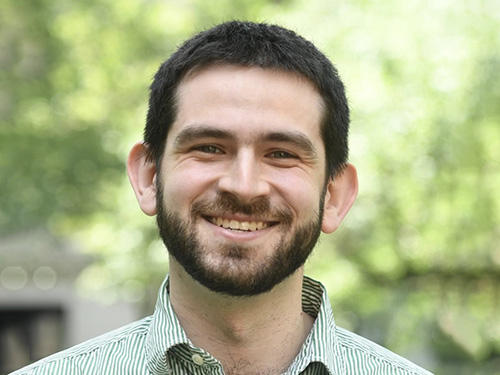Daniel Shlian, Ph.D. – Emerald Cloud Lab

Please tell us about your background: where you grew up, studied, and why you chose the field you did.
I grew up in Central New Jersey, and obtained my BA in chemistry from Yeshiva University in New York City, where I developed an interest in inorganic chemistry research. For my Ph.D., I continued in the same field and the same city; I did my doctoral work at Columbia University in Professor Gerard Parkin’s group, where I studied the synthesis and characterization of main group metal complexes, and explored their roles as catalysts for reduction of carbon dioxide and other carbonyl compounds. After completing my doctoral work, I was interested in transitioning to industry, where I could further broaden my scientific horizons while seeing tangible results from my work.
What does your current position entail? How does it tie into your previous experience, and where is it going?
In September 2022, I joined Emerald Cloud Lab as a Scientific Developer. ECL, located in Austin, Texas, is a first-of-its-kind remotely controlled laboratory, which allows scientists to precisely design experiments from anywhere in the world, executes those experiments in our highly automated lab, and provides powerful data and analysis tools with the scientific results. In my predominantly remote role as a Scientific Developer, I write code to build the interface between the scientist and the laboratory: parameterizing experiments to give the user maximal control over scientific detail and designing and testing experimental procedures to integrate into our automated workflow. In doing so, I consistently draw on my own laboratory expertise along with the shared scientific and software development expertise of my colleagues and have been able to work in an ever-widening range of scientific techniques and disciplines.
In what context did you first learn about light scattering and Wyatt Technology's instruments? How has your Wyatt instrumentation contributed to your research and development studies?
At ECL, we aim to provide full coverage of scientific experimentation to our users, which entails anticipating the needs of a diverse clientele of researchers. Dynamic and static light scattering are invaluable tools in protein and polymer synthesis, allowing for quantitative determination of analyte size, molecular weight, and polydispersity, as well as analyses of colloidal and thermal stability. In our lab, where we prioritize automatability and efficiency, we were highly interested in a high-throughput tool for DLS and SLS studies, especially one amenable to programmable experiment design. The DynaPro™ Plate Reader III, which performs light scattering assays using conventional multi-well plates, allows for precise temperature-based studies, and enables highly precise method design, integrates seamlessly into our automated workflow and furthers our goal of flexibly providing for the broadest possible range of scientific needs. We are happy to add the DynaPro to our existing lineup of Wyatt instruments, including the DAWN™ and Optilab™.

The DynaPro Plate Reader III helps us enable scientists to obtain quantitative sizing data about protein and polymer analytes, while integrating seamlessly into our highly automated workflow.
